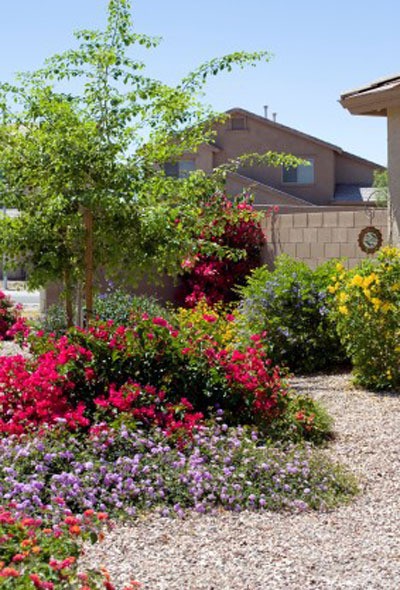
Plants are not always the only things in the garden to get transplanted. Sometimes it's gardeners themselves. If you move across the country, or even across the state, you may suddenly find yourself in entirely new Hardiness Zone. Here are some tips to help you find the information and resources you need to grow and enjoy your new garden.
Determine Your New Zone: Even before you move, the first order of gardening business should be determining your new growing zone. This will give you a starting place for researching new plants, as well as help you determine the odds as to whether or not any of your current plants will successfully make the trip. Keep in mind though, the growing zone is just one broad part of your new gardening picture. Local climates, even across the same Hardiness Zone, are often dramatically different due to soil types, daytime temperatures, day length, wind, humidity, and heat. Determining your zone is a good starting point, but you still need to determine for yourself what will and won't work in your garden.
Use this USDA map to determine your new zone:
http://www.usna.usda.gov/Hardzone/ushzmap.html
Seek Out Master Gardeners: Master Gardeners are citizen volunteers trained by county extension agricultural agents. This training enables them to be effective resources in their local communities, where they volunteer their time to a wide range of gardening projects. Not only do Master Gardeners enjoy sharing their knowledge of and enthusiasm for gardening with others, but because they live in your community, they are well connected to what is happening locally in the garden world.
Follow this link to find contact information for one your area:
http://www.extension.org/pages/State_and_Provincial_Master_Gardener_Coordinators
Contact Your County Extension Agency: Each U.S. state and territory has a state Extension Office at its land-grant university and a network of local or regional offices. These offices are staffed by one or more experts who can provide you with useful, practical, and research-based information on gardening in your area.
http://www.csrees.usda.gov/Extension/
Get Yourself a Library Card: Libraries are a great way to meet people and exchange ideas, and almost every city has one (or at least one close by). Here you'll find one of the best and most under-utilized free resources available- especially to people who are relocating. Most libraries offer a good selection of regional gardening books and magazines. Check a few out for free and then decide which ones are worth buying.
Have your soil tested: Take the time to have your soil tested. Even if you're moving to an area with a reputation for a certain soil type, the soil may have been altered by the home's previous owners. A soil test gives you current information on the nutrient levels and chemical characteristics of your new garden's soil, which helps prevent over-applying fertilizer, saves you money, and protects environmental quality.

About The Author: Ellen Brown is an environmental writer and photographer and the owner of Sustainable Media, an environmental media company that specializes in helping businesses and organizations promote eco-friendly products and services. Contact her on the web at http://www.sustainable-media.com
Add your voice! Click below to comment. ThriftyFun is powered by your wisdom!
Fantastic advice! Also find a local yahoo gardening group in your area; where you can give and get plants freely! Just share joy in the idea of gardening!
Add your voice! Click below to comment. ThriftyFun is powered by your wisdom!